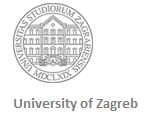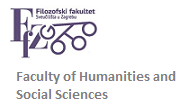Home » 7. i 9. semestar : KNJIŽEVNI KOLEGIJI (Page 2)
Category Archives: 7. i 9. semestar : KNJIŽEVNI KOLEGIJI
Architext in postmodern British literature – ARCH
Course title: Architext in postmodern British literature Instructor: Asst. Prof. Vanja Polić ECTS credits: 6 Status: elective Semester: 7th and 9th semester Enrollment requirements: enrollment in the 7th or 9th semester Course description: The course offers an insight into the postmodern British novel with a focus on the dialogue that the postmodern literature sets up […]
Topics in American Studies 1: Church and State in American History
Course title: Topics in American Studies 1: Church and State in American HistoryInstructor: Prof. Douglas Ambrose (Fulbright Scholar)ECTS credits: 6Status: ElectiveLanguage: EnglishSemester: 7th or 9thEnrolment requirements: enrolment in the 7th and/or 9th semesterCourse Purpose:This seminar examines the fascinating relations between religion and politics in colonial British North America and the United States from the colonial […]
Contemporary US Ethnic Literatures (2012/13)
Course title: Contemporary US Ethnic Literatures Instructor: Assoc. Prof. Jelena Šesnić Semester: 7th or 9th Course description: The course will look into a very innovative and dynamic section of contemporary US literary/cultural production—literature produced by and about different established and newly arisen “ethnic communities” with special focus on post-Vietnam War developments. We shall address new […]
A Historical Survey of the Fantastic in British Literature (2012-13)
Course title: A Historical Survey of the Fantastic in British LiteratureInstructor: Asst. Prof. Iva PolakECTS credits: 6Status: electiveSemester: 7th and 9th semesterEnrollment requirements: enrollment in the 7th and/or 9th semesterCourse description: The course offers a historical survey of fantasy in British literature and includes discussion on the most seminal theoretical works on fantasy and the […]
The History and the Paradigms of American Studies 1
Course title: The History and the Paradigms of American Studies Instructor: Prof Stipe Grgas ECTS credits: 6 Status: mandatory for American specialization; otherwise elective Semester: I or III Enrollment requirements: enrollment into the graduate program Course description: The course explores the history of the development of American Studies and the different paradigms that were initially […]
Milton
Course title: Milton Instructor: Asst. Prof. Tomislav Brlek (Comparative Literature Department) ECTS points: 6 Language: English Duration: 1 semester (1st or 3td) Status: elective Enrollment requirements: enrollment in 1st or 3td semester Evaluation method: exam Syllabus 1. Introduction 2. L’Allegro and Il Penseroso 3. Lycidas 4. Comus 5. Samson Agonistes 6. Paradise Lost, Book I 7. […]
English Baroque Poetry (Ciglar Žanić)
Course title: English Baroque Poetry Instructor: Prof. Janja Ciglar-Žanić ECTS credits: 6 Status: elective Semester: 7th and 8th semester Enrollment requirements: completed 6th semester Course description:The course will be concerned with the earlier seventeenth-century English poetry from the point of view of its close relationship/ identity with the European poetry of the time. Baroque will […]
Modern British Novel and the British Empire (archive)
Course title: Modern British Novel and the British Empire Instructor: Prof. Borislav Knežević ECTS credits: 6 Status: elective Semester: 7th and 9th Enrollment requirements: Enrollment in the graduate programme Course description: In this course we will read a selection of British modernist novels (Conrad, Joyce, Tagore). Our thematic focus will be on the literary uses […]



